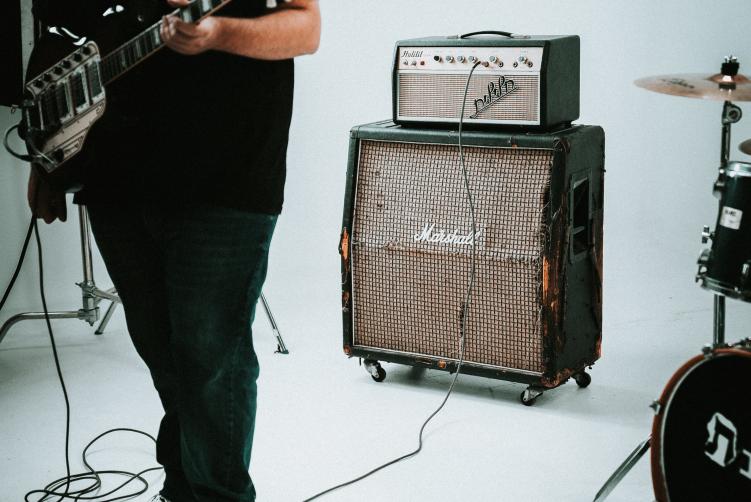Having the right sound system can make a dramatic difference in any audio setup. With video and music systems becoming ever more advanced, amplifiers have become an essential piece of hardware for delivering incredible sound quality.
An amplifier is key for producing quality, powerful sound that can be heard and enjoyed by all. Not only does it raise the volume of audio signals generated from a device such as a turntable or computer, but it also clarifies and refines any given frequency range so that sounds are accurately reproduced without distortion or harshness.
It’s time to explore why an amplifier is such a crucial part of any audio setup: we will go over how amplifiers work, their various types and applications, as well as how they can help you create high-quality sound output at home or on-stage.
What is and amplifier and how does it work?
An amplifier is a device used to increase the power of an audio signal. Through these increases in power, we can appreciate full range of frequencies available in our sound.
An amplifier takes a small weak electrical signal and turns it into a larger stronger electrical signal. This process is called gain, where most amplifiers will convert a voltage that is much smaller originally into one that is much higher and more powerful.
Many amplifiers also have other functions such as tone control and filters that allow us to shape the sound we hear and extract specific frequencies from the overall audio signal.
There are different types of amplifiers each with their own unique design; however conceptually most amplifiers follow the same basic principles of taking a small signal, increasing its power, and then outputting a larger one for us to enjoy!
What are the different types of amplifiers on market and what are their applications?
There are many different types of amplifiers on the market, each tailored towards different applications.
Operational amplifiers (op amps) are one of the most common types and are used for linear amplification and function as a general-purpose building block for many complex circuits in audio, communications and control systems.
Vacuum tube amplifiers are best known for their warm, nostalgic sounds but also provide plenty of clean power when needed, making them popular in vintage guitar amplifier designs.
Solid-state power amplifiers offer reliability, efficiency and low weight without sacrificing sound quality or performance, making them ideal for touring musicians and home audio alike.
Lastly, Class D amplifiers offer ultra-high power density while ensuring high efficiency and low distortion levels, making it ideal for any application where space is at a premium.
How to choose the right amplifier for your specific needs?
Knowing the power requirements of your audio system, as well as the room size and desired volume levels can help guide you in selecting an appropriate amplifier.
Be sure to consider brands and price points, too; if necessary, take advantage of online reviews to get an idea of sound quality before making a purchase. You might need to pay a bit more if you opt for Marshall or Electro-Voice amplifier or any other brand that is popular today, but at least you can be sure that you are getting the best worth for your money.
Finally, remember that it’s better to slightly overestimate your amplification needs than fall short on wattage; that way, you’ll ensure proper coverage without blowing out speakers or drowning out clarity with low power output.
What makes amplifiers such a critical part of any sound system?
Amplifiers are a beyond-critical component for any sound system. They allow us to move and control the electrical current from our audio source, adding gain to power up the audio so that it can be played at an appropriate and satisfactory volume level.
In other words, an amplifier is what provides the muscle to make your music or vocal sound loud and clear no matter where you’re listening from – giving you a true, uninterrupted experience with maximum clarity.
And not only that – amplifiers also offer extra features like distortion, advanced equalization and spatial enhancements, allowing greater control to shape your listening experience really precisely down to the last detail.
What are the best brands of amplifiers on the market today and what makes them stand out?
Marshall, Denon, and Electro-Voice amplifiers are some of the most well-known on the market today.
Marshall and Denon both have decades of experience in producing high-quality amplifiers that offer clarity, precision, and warmth while still maintaining easy portability. Marshall’s signature sound has made it one of the most recognized brands in music, respected by both professionals and amateurs alike.
The Denon and Electro-Voice amplifiers both feature heavy-duty built-in power supplies for use in live settings without sacrificing quality. Both companies provide outstanding performance from their products at an affordable price point, making them ideal for home studios or lower-budget gigs.
Overall, these three brands provide a wide range of options for any musician’s needs; from Marshall powerhouse sounds to Denon and Electro-Voice amplifier reliability, these brands stand out for their commitment to providing customers with versatile yet powerful audio experiences.


Having the right sound system can make a dramatic difference in any audio setup. With video and music systems becoming ever more advanced, amplifiers have become an essential piece of hardware for delivering incredible sound quality.
An amplifier is key for producing quality, powerful sound that can be heard and enjoyed by all. Not only does it raise the volume of audio signals generated from a device such as a turntable or computer, but it also clarifies and refines any given frequency range so that sounds are accurately reproduced without distortion or harshness.
It’s time to explore why an amplifier is such a crucial part of any audio setup: we will go over how amplifiers work, their various types and applications, as well as how they can help you create high-quality sound output at home or on-stage.
What is and amplifier and how does it work?
An amplifier is a device used to increase the power of an audio signal. Through these increases in power, we can appreciate full range of frequencies available in our sound.
An amplifier takes a small weak electrical signal and turns it into a larger stronger electrical signal. This process is called gain, where most amplifiers will convert a voltage that is much smaller originally into one that is much higher and more powerful.
Many amplifiers also have other functions such as tone control and filters that allow us to shape the sound we hear and extract specific frequencies from the overall audio signal.
There are different types of amplifiers each with their own unique design; however conceptually most amplifiers follow the same basic principles of taking a small signal, increasing its power, and then outputting a larger one for us to enjoy!
What are the different types of amplifiers on market and what are their applications?
There are many different types of amplifiers on the market, each tailored towards different applications.
Operational amplifiers (op amps) are one of the most common types and are used for linear amplification and function as a general-purpose building block for many complex circuits in audio, communications and control systems.
Vacuum tube amplifiers are best known for their warm, nostalgic sounds but also provide plenty of clean power when needed, making them popular in vintage guitar amplifier designs.
Solid-state power amplifiers offer reliability, efficiency and low weight without sacrificing sound quality or performance, making them ideal for touring musicians and home audio alike.
Lastly, Class D amplifiers offer ultra-high power density while ensuring high efficiency and low distortion levels, making it ideal for any application where space is at a premium.
How to choose the right amplifier for your specific needs?
Knowing the power requirements of your audio system, as well as the room size and desired volume levels can help guide you in selecting an appropriate amplifier.
Be sure to consider brands and price points, too; if necessary, take advantage of online reviews to get an idea of sound quality before making a purchase. You might need to pay a bit more if you opt for Marshall or Electro-Voice amplifier or any other brand that is popular today, but at least you can be sure that you are getting the best worth for your money.
Finally, remember that it’s better to slightly overestimate your amplification needs than fall short on wattage; that way, you’ll ensure proper coverage without blowing out speakers or drowning out clarity with low power output.
What makes amplifiers such a critical part of any sound system?
Amplifiers are a beyond-critical component for any sound system. They allow us to move and control the electrical current from our audio source, adding gain to power up the audio so that it can be played at an appropriate and satisfactory volume level.
In other words, an amplifier is what provides the muscle to make your music or vocal sound loud and clear no matter where you’re listening from – giving you a true, uninterrupted experience with maximum clarity.
And not only that – amplifiers also offer extra features like distortion, advanced equalization and spatial enhancements, allowing greater control to shape your listening experience really precisely down to the last detail.
What are the best brands of amplifiers on the market today and what makes them stand out?
Marshall, Denon, and Electro-Voice amplifiers are some of the most well-known on the market today.
Marshall and Denon both have decades of experience in producing high-quality amplifiers that offer clarity, precision, and warmth while still maintaining easy portability. Marshall’s signature sound has made it one of the most recognized brands in music, respected by both professionals and amateurs alike.
The Denon and Electro-Voice amplifiers both feature heavy-duty built-in power supplies for use in live settings without sacrificing quality. Both companies provide outstanding performance from their products at an affordable price point, making them ideal for home studios or lower-budget gigs.
Overall, these three brands provide a wide range of options for any musician’s needs; from Marshall powerhouse sounds to Denon and Electro-Voice amplifier reliability, these brands stand out for their commitment to providing customers with versatile yet powerful audio experiences.
Related Content: